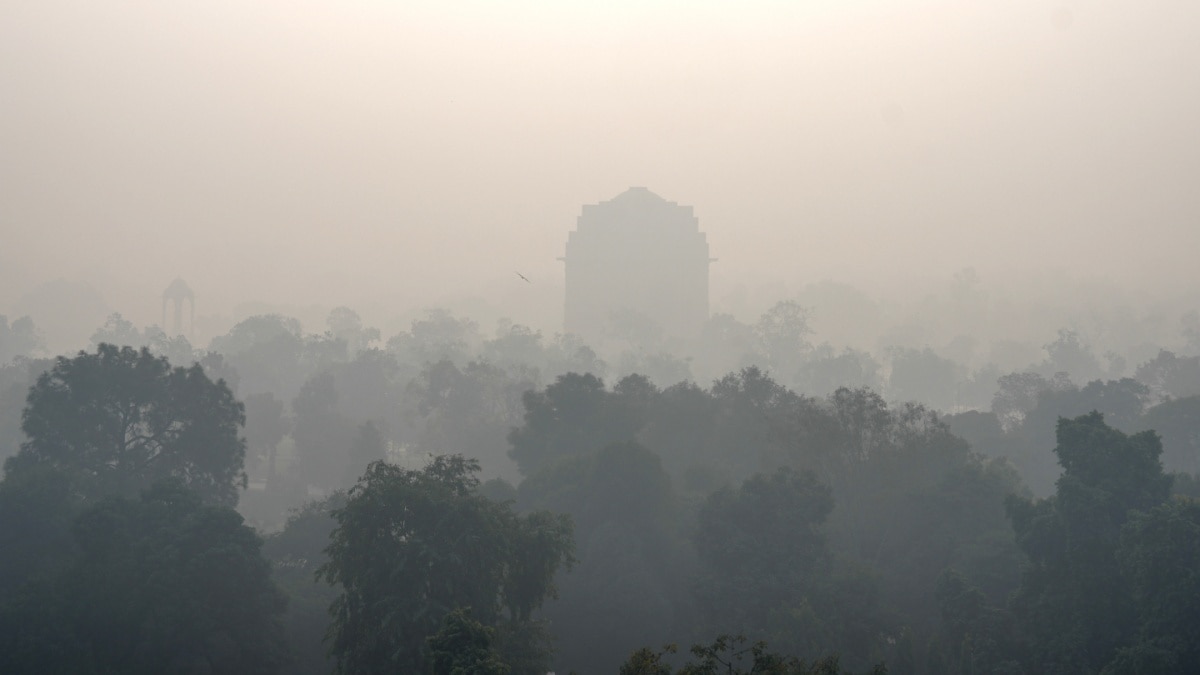
With Diwali still a week away, the air quality in the national capital region has already taken a big hit in recent days. On Sunday, Delhi's air quality continued to remain in the 'poor' category, with the city's Air Quality Index (AQI) recorded at 265, according to the data released by the Central Pollution Control Board (CPCB) at 9 am. However, as per the CPCB data, the AQI was worse in Anand Vihar, with a reading of 454, falling in the 'severe' category.
An AQI between zero and 50 is considered "good", 51 and 100 "satisfactory", 101 and 200 "moderate", 201 and 300 "poor", 301 and 400 "very poor", and 401 and 500 "severe". 'Buses From UP Behind Pollution' Amid the worsening air quality, Delhi Chief Minister Atishi on Sunday said one of the biggest contributors to pollution in the Anand Vihar area is the influx of buses from other states. She said the Delhi government will engage with the Uttar Pradesh government to implement anti-pollution measures at their bus depot near the national capital.
She made these remarks while inspecting pollution control measures at the Anand Vihar bus depot along with Environment Minister Gopal Rai. Highlighting the issue, Atishi said, "Anand Vihar, which lies on the Delhi-UP border, remains a hotspot where AQI levels are the highest. This area sees a large influx of buses from outside Delhi, and there is also the Kaushambi bus depot nearby.
While Delhi runs CNG and electric buses, the Kaushambi bus depot receives diesel buses. We plan to engage with the UP government to implement pollution control measures there as well." Constructions by the NCRTC and RRTS have also contributed to pollution levels in the area, she said, adding the Delhi government is utilising all available resources, including 99 teams for dust control and over 315 smog guns, to mitigate the issue.
"Smog guns are operating constantly in this area, and the roads are being kept wet to control dust. All roads have been repaired, and congestion points have been cleared to ease traffic flow," Atishi said. Atishi also addressed the issue of pollution in the Yamuna, accusing the Haryana and UP governments of releasing untreated effluent into the river.
"During the Chhath festival, they shut their Agra Canal, diverting their untreated waste towards Delhi. However, we remain solution-oriented. That is why we are using food-based silicone defoamers, and the Delhi Jal Board is conducting a defoaming drive to tackle the problem.
Even if others try to disrupt our efforts, we will continue working towards a cleaner Yamuna," she said. Environment Minister Gopal Rai pointed out that air quality fluctuates significantly late at night and early in the morning, coinciding with the arrival and departure of buses. "The AQI is especially bad at these times, and the major reason appears to be the presence of two depots -- one at Anand Vihar in Delhi and the other at Kaushambi in UP.
While buses in Delhi are now running on CNG and electric, a large number of diesel buses from UP still operate at these depots. The smoke from these buses is impacting the air quality," he said. Rai urged the UP government to adopt similar pollution control measures, saying a coordinated approach is required to yield positive results.
'3 In 10 Delhi-NCR Families Affected By Pollution' Amid deteriorating air quality, 36 per cent of the families in Delhi-NCR have one or more members experiencing pollution-related ailments like sore throat, cough, and breathing difficulty, a survey revealed. With over 21,000 responses from the residents of Delhi-NCR, the survey -- conducted by digital platform LocalCircles -- has revealed the impacts of air pollution on the people of the national capital region. The findings show that 36 per cent of families have one or more members experiencing sore throat, cough, and breathing difficulty due to pollution and 27 per cent of the families have one or more members with a runny nose and congestion.
Twenty-seven per cent of respondents said they were not facing any health issues related to the poor air quality, according to the survey. With Delhi's AQI in the "poor" category, the survey asked the respondents about their plans to cope. The results highlighted that only 18 per cent of the respondents intend to use air purifiers whereas a large chunk of respondents plan to increase their intake of immunity-boosting foods and drinks.
"About 22 per cent of the people are considering leaving the city for a few days to avoid the peak pollution period around Diwali," it said..










